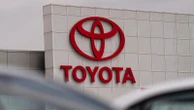Every year, millions of Muslims take part in observing Ramadan: a spiritual month dedicated to cleansing the soul and spirit, hallmarked by the practice of fasting. This means that for 30 days, from sunrise to sunset, practitioners abstain from eating food and drinking water, only breaking their fast once the sun disappears in their respective geolocation—a time that shifts up or down depending on the season.
Yep, not even water.
As someone who observes Ramadan, every year I am both amused and baffled by the awkwardness that surrounds the month in the workplace. Inquiries about what fasting entails are far and few, whether out of fear of disrespect, uncertainty, or just plain avoidance.
This means not being able to understand the physical and mental tolls that your fellow colleagues who are fasting might be experiencing.
@byefarzy It’s inevitable ima forget happens every year 😭😭 #fyp #ramadan #muslim ♬ original sound – Farzy
@byefarzy It’s inevitable ima forget happens every year 😭😭 #fyp #ramadan #muslim ♬ original sound – Farzy
It’s inevitable ima forget happens every year 😭😭 #fyp #ramadan #muslim
So, for the uninitiated, here are a few things about Ramadan that businesses can learn, as well as how they can support those observing, especially in these last few days.
Let’s start from the beginning
Ramadan is a holy month in the Islamic calendar. The ninth month in the lunar cycle, it revolves around fasting, spirituality, prayers, giving to charity—all part of the five pillars of Islam. After 30 days of fasting, the month culminates in a celebration—a holiday called Eid-al-Fitr that is so filled with food and sweets, one would think you’re making up for lost time!
In a 2024 Mojo Supermarket report, the agency comments on how in spite of over 4 million practicing Muslims in America, the absence of Ramadan brand marketing is astonishing. In fact, Party City was the first mainstream party supply store to carry Ramadan decor—only seven years ago! You can imagine the utter disappointment folks felt upon learning that the store was going out of business.
How could the United States, the Mecca (no pun intended) of capitalism, have missed the mark so badly? We’ve got dollars burning in our pockets, begging to be spent. Throw us a bone here—a paper lantern or plastic mugs shoddily printed with Ramadan Mubarak will suffice.
How to make your work environment Ramadan-friendly
Because your fasting colleagues are waking up an hour before sunrise for suhoor —the period of time to eat and drink for the day—it often leads to a disruption in sleep cycles. Apart from general knowledge, the awareness that aspects of fasting can impact cognitive abilities—fatigue, dehydration, inability focus—can enable teammates to cultivate a working environment that sets up them up to do their best work.
Where possible, try to avoid scheduling late-afternoon meetings, a period in which low energy is often most visible. If you’re a manager, allowing your direct reports to rearrange working hours—such as starting the day earlier, or ending early and resuming after breaking fast—is an excellent way to accommodate colleagues whose brains may be sluggish by late day, as well as giving them time to prepare for Iftar (time time to break fast.)
If there is space in the office, curating an area for prayers, which usually take only minutes, is another thoughtful way to acknowledge the month. If your office is remote or hybrid, consider extending additional remote days for fasting colleagues.
How some companies are recognizing Ramadan this year
Some organizations are doing the most when it comes to inventing creative ways to honor their fasting colleagues and commemorate the month—a particularly meaningful feat given the state of diversity, equity and inclusion (DEI) efforts in the United States right now.
Shaina Zafar, director, Next Gen at UTA, says the company has made a concerted effort to increase awareness around not only what Ramadan means symbolically and spiritually but also centered it around an ethos of community-building and cultural collaboration across interfaith communities.
“Ramadan is a time for meaningful reflection and recentering for the billions of Muslims who observe,” says Zafar. “We see a fundamental re-imagination of our entire routines for these 30 days, and considering the impact this has on Muslims in the workplace—as they sometimes break their fast during work hours—it requires companies to intentionally engage with tangible resources and thoughtful support for employees observing Ramadan.”
UTA hosted its second company Iftar in New York this year, according to Zafar, in addition to creating a Ramadan workplace inclusion guide. It also hosted a conversation on Muslim representation in the media, followed by Iftar in its Los Angeles office.
At marketing company HubSpot, a challenge called “Can you Last a Ramadan Fast” was presented to employees.
“It’s great to see HubSpot colleagues embracing cultural understanding through the global Ramadan fasting challenge,” says Naimun Siraj, a senior software engineer at HubSpot. “This gives an opportunity for employees to gain insight into an important part of Islam, and fosters genuine empathy and builds community through shared experience.”
At Duolingo, Aliza Haider, director, immigration and global mobility, says the language-learning company is committed to nurturing an inclusive and supportive environment for “Duos” during Ramadan.
“We begin with reminders and best practices for our role managers, such as avoiding team lunches or food-related events during fasting periods,” says Haider. “This strategy promotes flexible working hours and cultivates a considerate physical environment. Our Workplace Team further supports our Duos by providing convenient meal boxes for pre-fast and post-fast times, allowing them to observe their traditions with ease and comfort.”









No comments